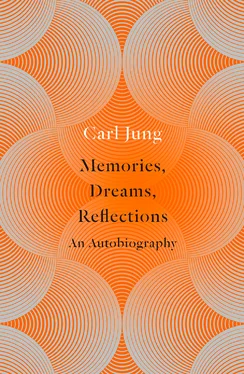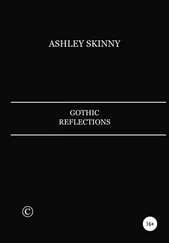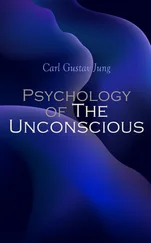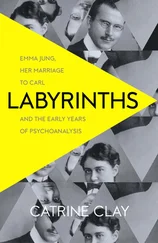To have enemies and be accused unjustly was not what I had expected, but somehow I did not find it incomprehensible. Everything I was reproached for irritated me, but I could not deny these reproaches to myself. I knew so little about myself, and the little was so contradictory that I could not with a good conscience reject any accusations. As a matter of fact I always had a guilty conscience and was aware of both actual and potential faults. For that reason I was particularly sensitive to reproofs, since all of them more or less struck home. Although I had not in reality done what I was accused of, I felt that I might have done it. I would even draw up a list of alibis in case I should be accused of something. I felt positively relieved when I had actually done something wrong. Then at least I knew what my guilty conscience was for.
Naturally I compensated my inner insecurity by an outward show of security, or — to put it better — the defect compensated itself without the intervention of my will. That is, I found myself being guilty and at the same time wishing to be innocent. Somewhere deep in the background I always knew that I was two persons. One was the son of my parents, who went to school and was less intelligent, attentive, hardworking, decent, and clean than many other boys. The other was grown up — old, in fact — sceptical, mistrustful, remote from the world of men, but close to nature, the earth, the sun, the moon, the weather, all living creatures, and above all close to the night, to dreams, and to whatever “God” worked directly in him. I put “God” in quotation marks here. For nature seemed, like myself, to have been set aside by God as non-divine, although created by Him as an expression of Himself. Nothing could persuade me that “in the image of God” applied only to man. In fact it seemed to me that the high mountains, the rivers, lakes, trees, flowers, and animals far better exemplified the essence of God than men with their ridiculous clothes, their meanness, vanity, mendacity, and abhorrent egotism — all qualities with which I was only too familiar from myself, that is, from personality No. 1, the schoolboy of 1890. Besides his world there existed another realm, like a temple in which anyone who entered was transformed and suddenly overpowered by a vision of the whole cosmos, so that he could only marvel and admire, forgetful of himself. Here lived the “Other,” who knew God as a hidden, personal, and at the same time supra-personal secret. Here nothing separated man from God; indeed, it was as though the human mind looked down upon Creation simultaneously with God.
What I am here unfolding, sentence by sentence, is something I was then not conscious of in any particular way, though I sensed it with an overpowering premonition and intensity of feeling. At such times I knew I was worthy of myself, that I was my true self. As soon as I was alone, I could pass over into this state. I therefore sought the peace and solitude of this “Other,” personality No. 2.
The play and counterplay between personalities No. 1 and No. 2, which has run through my whole life, has nothing to do with a “split” or dissociation in the ordinary medical sense. On the contrary, it is played out in every individual. In my life No. 2 has been of prime importance, and I have always tried to make room for anything that wanted to come to me from within. He is a typical figure, but he is perceived only by the very few. Most people’s conscious understanding is not sufficient to realise that he is also what they are.
Church gradually became a place of torment to me. For there men dared to preach aloud — I am tempted to say, shamelessly — about God, about His intentions and actions. There people were exhorted to have those feelings and to believe that secret which I knew to be the deepest, innermost certainty, a certainty not to be betrayed by a single word. I could only conclude that apparently no one knew about this secret, not even the parson, for otherwise no one would have dared to expose the mystery of God in public and to profane those inexpressible feelings with stale sentimentalities. Moreover, I was certain that this was the wrong way to reach God, for I knew, knew from experience, that this grace was accorded only to one who fulfilled the will of God without reservation. This was preached from the pulpit, too, but always on the assumption that revelation had made the will of God plain. To me, on the other hand, it seemed the most obscure and unknown thing of all. To me it seemed that one’s duty was to explore daily the will of God. I did not do that, but I felt sure that I would do it as soon as an urgent reason for so doing presented itself. Personality No. 1 preoccupied me too much of the time. It often seemed to me that religious precepts were being put in place of the will of God — which could be so unexpected and so alarming — for the sole purpose of sparing people the necessity for understanding God’s will. I grew more and more sceptical, and my father’s sermons and those of other parsons became acutely embarrassing to me. All the people about me seemed to take the jargon for granted, and the dense obscurity that emanated from it; thoughtlessly they swallowed all the contradictions, such as that God is omniscient and therefore foresaw all human history, and that he actually created human beings so that they would have to sin, and nevertheless forbids them to sin and even punishes them by eternal damnation in hell-fire.
For a long time the devil had played no part in my thinking, curiously enough. The devil appeared to me no worse than a powerful man’s vicious watchdog, chained up. Nobody had any responsibility for the world except God, and, as I knew only too well, He could be terrible. My doubts and uneasiness increased whenever I heard my father in his emotional sermons speak of the “good” God, praising God’s love for man and exhorting man to love God in return. “Does he really know what he is talking about?” I wondered. “Could he have me, his son, put to the knife as a human sacrifice, like Isaac, or deliver him to an unjust court which would have him crucified like Jesus? No, he could not do that. Therefore in some cases he could not do the will of God, which can be absolutely terrible, as the Bible itself shows.” It became clear to me that when people are exhorted, among other things, to obey God rather than man, this is said just casually and thoughtlessly. Obviously we do not know the will of God at all, for if we did we would treat this central problem with awe, if only out of sheer fear of the overpowering God who can work His terrifying will on helpless human beings, as He had done to me. Could anyone who pretended to know the will of God have foreseen what He had caused me to do? In the New Testament, at any rate, there was nothing comparable. The Old Testament, and especially the Book of Job, might have opened my eyes in this respect, but at that time I was not familiar enough with it. Nor had I heard anything of the sort in the instruction for confirmation, which I was then receiving. The fear of God, which was of course mentioned, was considered antiquated, “Jewish,” and long since superseded by the Christian message of God’s love and goodness.
The symbolism of my childhood experiences and the violence of the imagery upset me terribly. I asked myself: “ Who talks like that? Who has the impudence to exhibit a phallus so nakedly, and in a shrine? Who makes me think that God destroys His Church in this abominable manner?” At last I asked myself whether it was not the devil’s doing. For that it must have been God or the devil who spoke and acted in this way was something I never doubted. I felt absolutely sure that it was not myself who had invented these thoughts and images.
These were the crucial experiences of my life. It was then that it dawned on me: I must take the responsibility, it is up to me how my fate turns out. I had been confronted with a problem to which I had to find the answer. And who posed the problem? Nobody ever answered me that. I knew that I had to find the answer out of my deepest self, that I was alone before God, and that God alone asked me these terrible things.
Читать дальше












